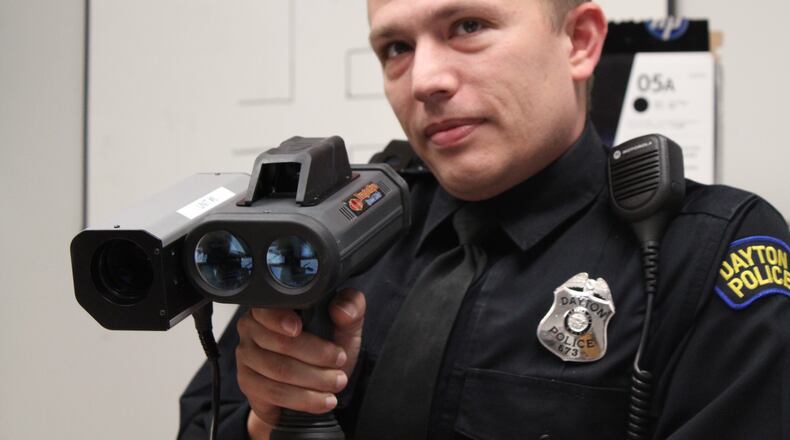RELATED: New traffic enforcement weapon: Speed guns with cameras
The city is legally required to give citizens a way to contest the citations from traffic cameras, which are mailed out to the registered owners of vehicles that are caught on camera violating the law.
Tonight, Dayton commissioners will vote on contracts with attorneys Marc Ross and Kayla Rowe that would pay them each $85 per hour to oversee the administrative hearings.
In December, six people showed up to the first hearing where people could appeal their citations.
RELATED: Dayton speed cameras: Appeals start as 14,000 tickets issued
One woman showed she was not behind the wheel when her vehicle was caught on camera breaking the law, and her citation was dismissed and reissued to her daughter.
One man tried to argue that physics and quantum physics could explain how he was caught on camera speeding even though he was actually traveling at the posted speed limit. His appeal was denied.
The city also votes tonight on a $305,400 contract with Optotraffic LLC to manage the city’s photo enforcement program.
The city will have fixed, automated cameras at five locations and two speed trailers and six hand-held speed cameras that can be used at sites across the city.
The trailers have proven effective at encouraging motorists to drive more safely, since speed violations have declined 23 percent at one trailer site and 12 percent at the other, the city said.
The city restarted its photo enforcement program on Oct. 1, with warnings being issued for 30 days. The city issued more than 19,000 warnings during that month.
The city has received about $89,900 in revenue from traffic camera fines through mid-December, even though the fixed cameras are not fully operational yet.
QUICK READS ABOUT DAYTON
About the Author

